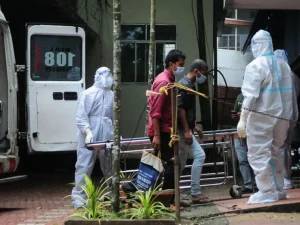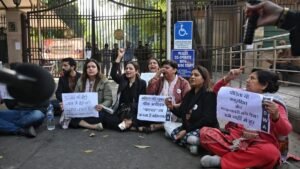Kerala’s health department has issued a high alert after confirming a Nipah virus case in the state. The confirmation comes after intensive testing and monitoring by local health officials throughout the region.
What Makes This Outbreak Particularly Concerning
The current Nipah outbreak shows several concerning characteristics that worry health experts across India. Contact tracing has revealed over 675 individuals who potentially faced exposure to the virus carrier.
Your understanding of this virus becomes crucial during these challenging times. The pathogen causes severe respiratory illness and neurological complications in infected patients.
Breaking Down the Numbers
Health officials have categorized contacts into different risk levels based on exposure intensity:
- High-risk contacts: 152 individuals requiring immediate quarantine
- Moderate-risk contacts: 298 people under active monitoring
- Low-risk contacts: 225 individuals with minimal exposure
These numbers reflect the virus’s rapid transmission potential within close-contact environments.
How Health Authorities Are Responding
Kerala’s rapid response team has deployed comprehensive containment measures throughout affected areas. Medical teams are conducting house-to-house visits to identify symptomatic individuals early.
Your local health center plays a vital role in this surveillance network. Testing facilities have been established in strategic locations across the state.
Symptoms Every Resident Should Monitor
Early Nipah symptoms often mimic common viral infections, making detection challenging for patients. Recognition of these signs could prove crucial for timely medical intervention.
Watch for these warning signs:
- Fever accompanied by severe headaches
- Vomiting and persistent nausea
- Breathing difficulties or chest tightness
- Confusion or altered mental state
Prevention Measures for Your Safety
Your daily habits can significantly reduce transmission risks during this outbreak period. Simple precautions prove effective against virus spread within communities.
Maintain these protective practices:
- Wash hands frequently with soap for twenty seconds minimum
- Avoid close contact with symptomatic individuals
- Clean commonly touched surfaces using disinfectant solutions
- Report fever or respiratory symptoms immediately
Why Kerala Faces Recurring Outbreaks
Kerala’s geographic location and environmental conditions create ideal circumstances for Nipah transmission. Fruit bats, the virus’s natural hosts, inhabit many areas throughout the state.
Your awareness of these environmental factors helps explain why outbreaks recur periodically. Deforestation and human encroachment into wildlife habitats increase contact opportunities.
The Role of Contact Tracing
Contact tracing remains the cornerstone of containing this infectious disease outbreak effectively. Teams identify every person who interacted with confirmed cases during infectious periods.
Your cooperation with health workers proves essential for accurate contact identification. Complete honesty about recent interactions helps create comprehensive contact lists.
Medical Facilities and Treatment Options
Kerala’s healthcare system has activated emergency protocols across all major medical facilities. Specialized isolation units have been established to treat confirmed cases safely.
Currently, no specific antiviral treatment exists for Nipah virus infections among patients. Supportive care focuses on managing symptoms and preventing complications during recovery.
Economic Impact on Local Communities
The outbreak affects local businesses, schools, and daily activities throughout the region. Market closures and gathering restrictions impact economic activities significantly.
Your understanding of these broader implications helps appreciate the outbreak’s comprehensive social impact. Recovery requires both medical intervention and economic support measures.
Learning from Previous Outbreaks
Kerala has faced multiple Nipah outbreaks since 2018, providing valuable experience for response teams. Previous incidents taught health officials about effective containment strategies.
Your community’s resilience during past crises demonstrates the importance of collective action. Public cooperation with health measures proved crucial for outbreak control.
Moving Forward with Caution
The current situation requires sustained vigilance from all residents throughout the affected areas. Health monitoring will continue for several weeks to ensure complete containment.
Your continued cooperation with health authorities remains vital for community safety. Following prevention guidelines protects both personal health and public welfare.
Conclusion
Kerala’s Nipah virus outbreak serves as a reminder of emerging infectious disease threats. While the situation remains serious, coordinated public health responses provide hope for containment.
Your role as an informed citizen contributes to successful outbreak management efforts. Together, communities can overcome health challenges through unity and proper precautions.








Be First to Comment